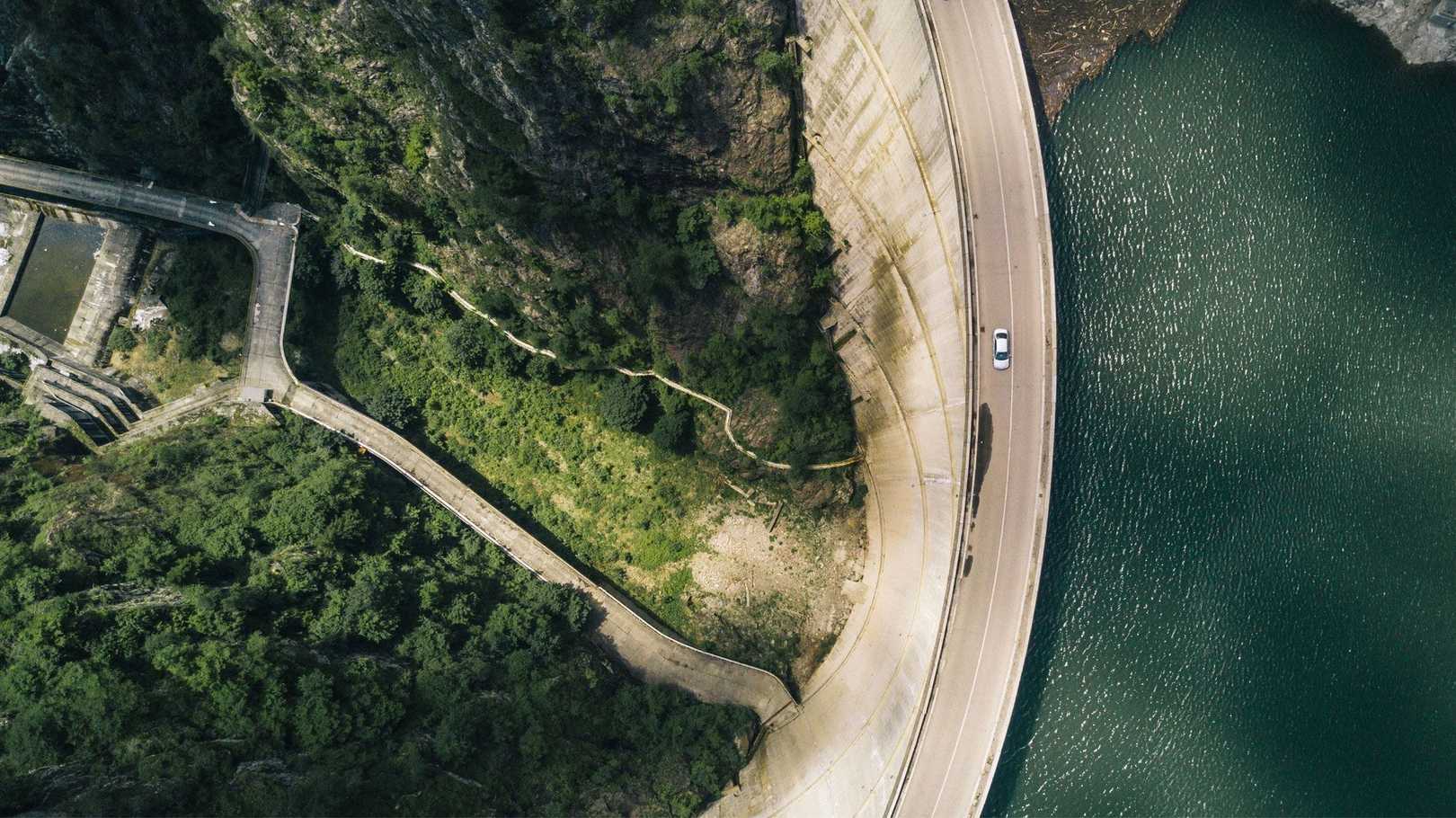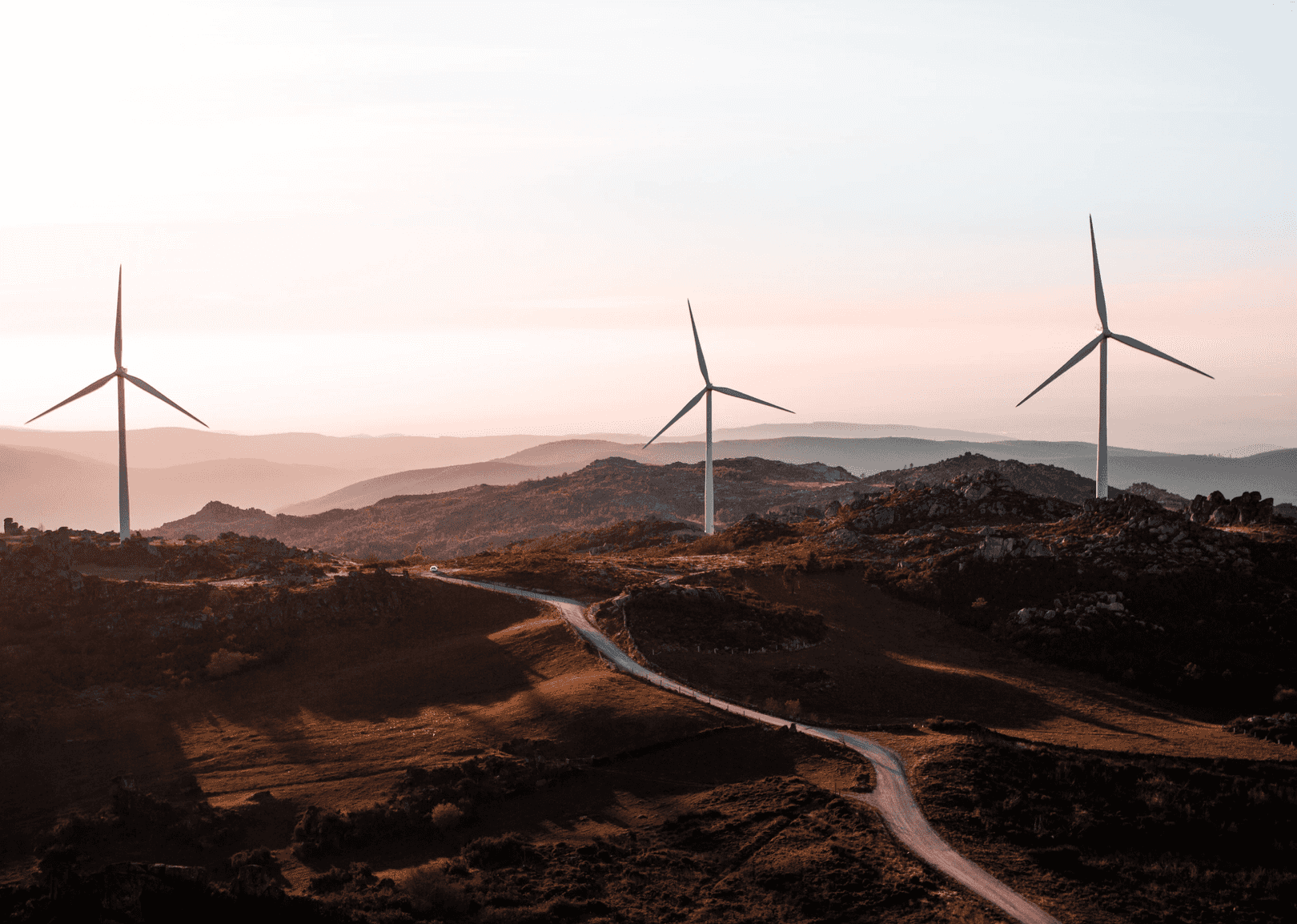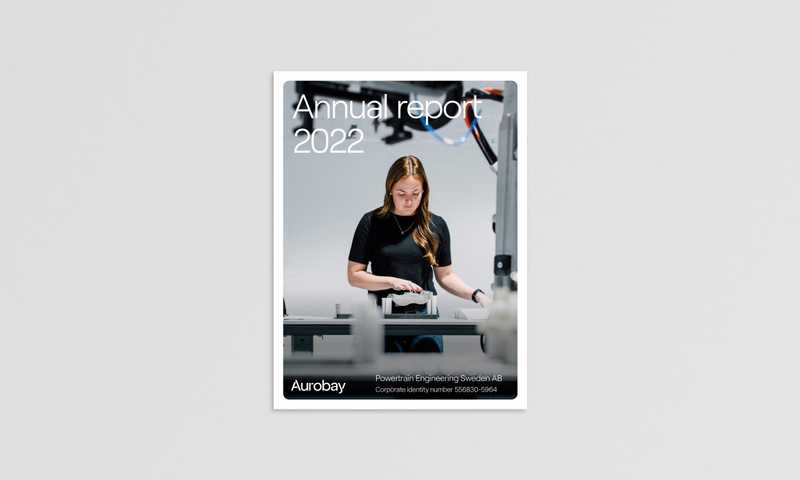Sustainability at Aurobay

Operating in a globalized world, we recognize that everything we do has an impact on our planet and people. As a manufacturing company in the automotive industry, we face large challenges on the road to a sustainable future - especially when it comes to drastically cutting down the greenhouse gas emissions, transitioning to circular resource flows and ensuring more transparent and responsible supply chains. We also have enormous opportunities to make this world a better place by improving in these areas. Here you can read some examples of the sustainability work we are doing today, and the goals we have set out to meet.

Cutting Emissions
Aurobay Sweden has officially committed to the Science Based Targets initiative (SBTi). With this step, we are reinforcing our dedication to aligning our business with the latest climate science. By committing to SBTi, we are preparing to set a near-term emission reduction target and net-zero target in line with the Paris Agreement—working toward limiting global warming to well below 2°C and striving for 1.5°C. While our targets are currently in development, this milestone marks a clear direction: transparent, science-based progress over promises. It’s another step forward on our journey to shape a responsible, lower-carbon future—driven by innovation, guided by science.
For now, climate targets vary slightly based on the region where we operate and on local environmental regulations. However, with a common goal to create a more sustainable future in the mobility industry, we have set out detailed climate targets to decrease our GHG emissions.
Aurobay Sweden has adopted a target of 25% reductions in value chain GHG emissions by 2030 (baseline year 2021), with further commitments of:
- 50% reductions in scope 1
- 65% reductions in scope 2
- with 100% renewable energy by 2030
- 25% reductions in scope 3 by 2030
Aurobay China has committed to the following targets:
- 100% renewable energy at all factories by 2025
- 5% of CO2e reductions annually in scope 1 and 2 (absolute emissions)
We are currently working to improve the quality and quantity of scope 3 data collection to support the formation of common climate targets and a long-term strategy towards net zero GHG emissions.
Circular Business
Aurobay Holding is committed to taking on the urgent need of adopting fully circular principles to our business, to further reduce greenhouse gas emissions, while addressing pollution and the depletion of natural resources.
We work towards ensuring a high degree of recycled aluminium and steel in our components, while making sure our products are possible to remanufacture. Our products and manufacturing processes are designed to minimize waste. In our factories, waste aluminum scrap is collected to be reused in other products. Parts of our production waste are sold as by-products to other users and thereby become reused.
Our products and manufacturing processes are designed to minimize waste. In the procurement process, we set demanding environmental requirements on materials, pushing suppliers to speed up the adoption of circular principles. At the end of our products’ lives, we seek to ensure they can be broken down into components and materials for reuse, remanufacturing, or recycling, for example by permanent markings on parts. We are currently developing a remanufacturing capability at Aurobay Sweden, with the purpose of giving our products a second life at their end of life.
As we strive towards a circular economy, we have set targets of:
- 60% recycled content by weight in product portfolio by 2030 (Aurobay Sweden)
- 60% recycled aluminum (Aurobay China)
- 4% waste reduction/unit year over year (Aurobay Sweden)
- Reduce water withdrawal/unit year over year (Aurobay Sweden)

A sustainable supply chain
Aurobay Holding is committed to working towards an ethical and sustainable supply chain. We are developing a robust due diligence and risk management system to increase transparency and minimize social and environmental impact in our supply chain.
An important part of our work towards creating a sustainable and transparent supply chain consists of mapping out so-called conflict minerals, often referred to as "3TGs" (Tin, Tantalum, Tungsten and Gold). These metals are often associated with human rights abuse, if originating from conflict-affected or high-risk areas. To address these risks, we have implemented requirements on our suppliers of parts containing 3TGs to only use smelters that are conformant with applicable international laws and the Responsible Minerals Assurance Process (RMAP) Standards. The RMAP offers companies and their suppliers an independent, third-party audit that determines which smelters and refiners that are in line with current global standards of responsible mineral sourcing. It is developed by the Responsible Mineral Initiative (RMI), which is one of the most respected resources for addressing responsible mineral sourcing issues in supply chains globally.
At Aurobay Sweden we have also set a target to reduce upstream scope 3 GHG emissions of 4% annually, which primarily is connected to the materials and services that we purchase. Moreover, we are rolling out a due diligence program during 2024 to strengthen on-site controls of sustainable business conduct at our suppliers.
Sustainable governance
Having clear policies, requirements, processes and steering practices in place is a prerequisite for achieving our sustainability commitments. With the rapid increase of legal and customer requirements on improved sustainability performance and reporting – we consider it a necessity to have an effective, structured, and transparent governance of our sustainability related activities. Sustainable governance acts as an important foundation for our other sustainability focus areas.
At Aurobay Sweden, our Code of Conduct sets out the foundation for how we treat each other and define the principles that all Aurobay employees must abide to, to ensure responsible business conduct. Our Code rests on internationally accepted conventions on human rights and labor rights as well as international guidelines for multinational companies. Aurobay supports the United Nations Global Compact initiative, which is a global strategic business initiative on corporate responsibility. Other important corporate documents of Aurobay connected to our focus on sustainable governance include our Supplier Code of Conduct, our Environmental policy and our People Policy, to name a few. Aurobay Sweden and Aurobay China are working closely to harmonize existing policies and processes and to create common reporting practices. In 2025 we will release our first common sustainability report.
Key activities connected to sustainable governance at Aurobay include:
- Financial and ESG transparency (3rd party assessments of public reports).
- Preparing for sustainability reporting in accordance with GRI as a steppingstone for compliance with the upcoming Corporate Sustainability Reporting Directive (CSRD).
- Preparing and conducting training on ESG policies and other ESG matters for our employees.
- Ensuring digital capabilities to manage ESG data and facilitate compliance with upcoming reporting legislation.

